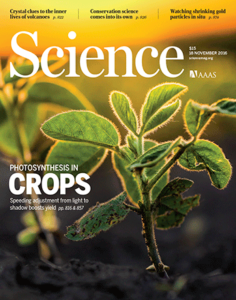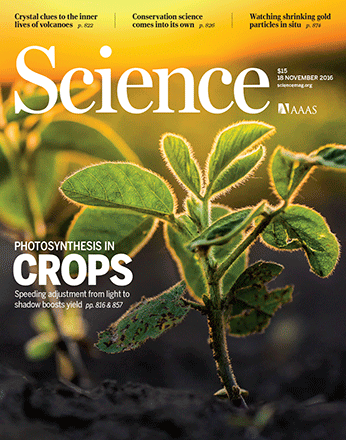 Plant biologists have bumped up crop productivity by increasing the expression of genes that result in more efficient use of light in photosynthesis, a finding that could be used to help address the world’s future food needs. Scientists in the Molecular Biophysics & Integrated Bioimaging (MBIB) Division at Berkeley Lab, the University of California, Berkeley (UC Berkeley), and the University of Illinois targeted three genes involved in a process plants use to protect themselves from damage when they get more light than they can safely use. By increasing the expression of those genes, the scientists saw increases of 14-20 percent in the productivity of modified tobacco plants in field experiments. MBIB Faculty Scientist Kris Niyogi, who is a Howard Hughes Medical Institute investigator and a UC Berkeley professor of plant and microbial biology, teamed up with Stephen Long, a plant biology and crop sciences professor at Illinois, for the Science study. The study was also covered in a Science In Depth article. Read more at the Berkeley Lab News Center.
Plant biologists have bumped up crop productivity by increasing the expression of genes that result in more efficient use of light in photosynthesis, a finding that could be used to help address the world’s future food needs. Scientists in the Molecular Biophysics & Integrated Bioimaging (MBIB) Division at Berkeley Lab, the University of California, Berkeley (UC Berkeley), and the University of Illinois targeted three genes involved in a process plants use to protect themselves from damage when they get more light than they can safely use. By increasing the expression of those genes, the scientists saw increases of 14-20 percent in the productivity of modified tobacco plants in field experiments. MBIB Faculty Scientist Kris Niyogi, who is a Howard Hughes Medical Institute investigator and a UC Berkeley professor of plant and microbial biology, teamed up with Stephen Long, a plant biology and crop sciences professor at Illinois, for the Science study. The study was also covered in a Science In Depth article. Read more at the Berkeley Lab News Center.




